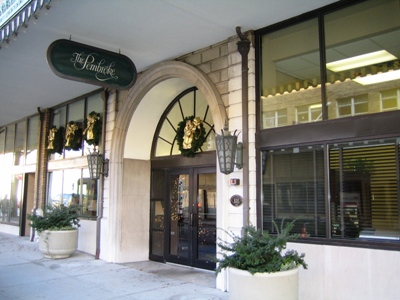 My imagination makes me human and makes me a fool; it gives me all the world and exiles me from it.--Ursula K. Le Guin |
 Union Avenue Union AvenueAn Urban Journal Exploring Place, Purpose, Literature, Memory, and This Time |
Journal Entries
| 
June, 2002, page 2
W As fragile and impermanent as humans are, how could any time not be perilous, how could any time be more perilous than the time preceding it? The human condition is relative. Technology has not relieved us of that fact. It may be said that technology has made life more perilous than safe. Well, a futurist would argue that point. But I am a literaturist, and the point I'm trying to make is that in one respect, we have a decided advantage over past generations, that technology is ambiguous, but literature keeps getting better, and keeps getting better at what it does best, which is (borrowing Proust's comment about memory) lifting us "out of the abyss of not-being." Literature tells us, as countless others have said before me and will continue to say long after me, who we are and where we've been; it tells us, as C.S. Lewis said, that we are not alone, and isn't that a far greater comfort than technology? Read Harold Bloom's book, How to Read and Why; he says it much better than I do. Now, someone is sure to ask, if I were banished to an unknown planet and could take one great thinker with me, whether I would choose Harold Bloom or Stephen Wolfram, the scientific genius du jour. And I would say, being a realist and a bit of a cynic, but primarily a thing of biology, with genes encoded to survive and which, in the end, don't give a fig for spiritual/intellectual inquiry and solace, "Sorry, Harold, I think you hung the moon, but a body doesn't really have a choice here, does it?
More later.....
|